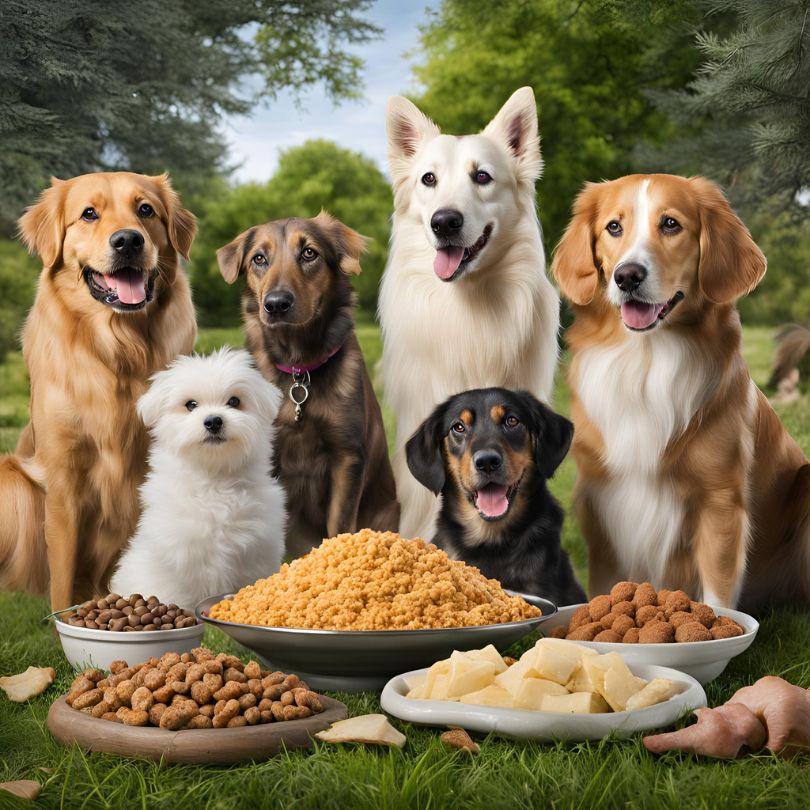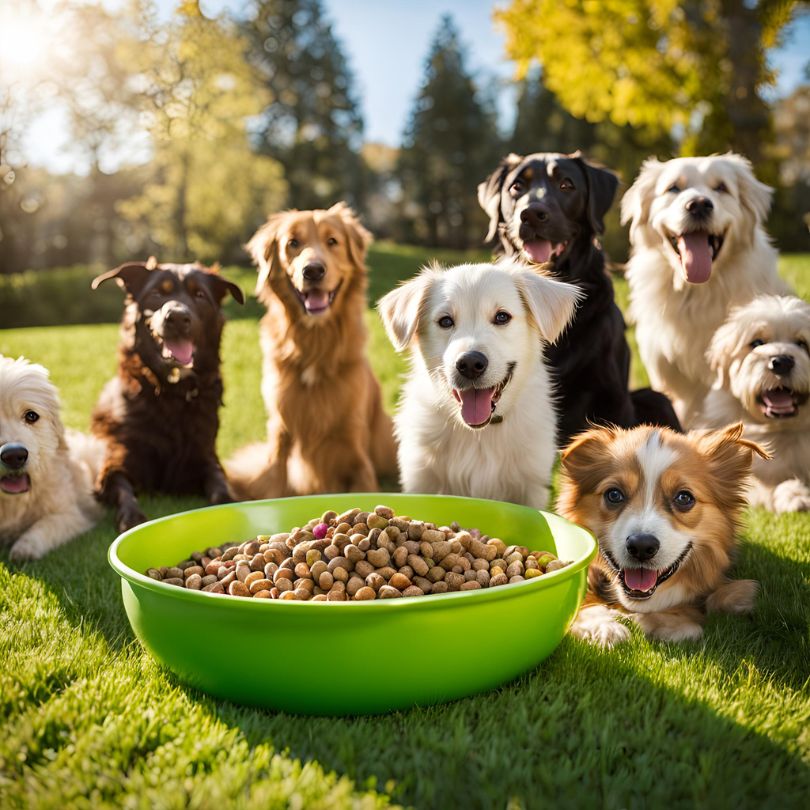Feeding your dog the right food at each stage of life is essential to their health and well-being. Like humans, dogs have unique dietary needs that change as they grow, from puppyhood through adulthood to their senior years. Proper nutrition supports growth, maintains energy, and helps prevent health issues. Here’s a guide to selecting the right food for your dog based on their age.
The Importance of Age-Appropriate Dog Food
Each stage of a dog’s life requires a different balance of nutrients to support growth, energy, and overall health. Puppies need food that fosters growth, while adult dogs benefit from maintenance diets, and senior dogs require support for aging bodies. Choosing the right food helps your dog stay healthy and active throughout their life.
1. Food for Puppies (0-12 Months)
Puppies grow rapidly, requiring high-calorie food that’s nutrient-dense to support their bones, muscles, and organ development.
Key Nutrients Needed:
– Protein: For muscle and tissue growth.
– Fat: Provides energy and supports brain and eye development.
– DHA and EPA: Omega-3 fatty acids that aid in cognitive and visual development.
– Calcium and Phosphorus: Essential for strong bones and teeth.
What to Look For:
Select food specifically formulated for puppies or labeled for “growth” or “all life stages.” These foods are designed to meet puppies’ higher energy and nutrient needs.
Feeding Tips:
– Puppies should eat small, frequent meals, typically 3-4 times per day.
– As they grow, reduce feeding frequency while increasing portion size according to their weight and activity level.

2. Food for Adult Dogs (1-7 Years)
Once dogs reach about one year of age, they transition to adult food. Adult dogs require a balanced diet for weight maintenance and sustained energy.
Key Nutrients Needed:
– Protein: Supports muscle health.
– Moderate Fat: Maintains energy without excessive calories.
– Fiber: Helps with digestion and weight control.
– Antioxidants: Support immune health.
What to Look For:
Choose food labeled for adult dogs or “maintenance” diets. These formulas are balanced to meet an adult dog’s nutritional needs without promoting excessive weight gain.
Feeding Tips:
– Feed adult dogs twice daily, ensuring they get appropriate portion sizes.
– Adjust portions according to your dog’s activity level and body condition, using feeding guides as a starting point.
3. Food for Senior Dogs (7+ Years)
As dogs age, their metabolism slows, and they may develop joint, digestive, or organ issues. Senior dog food is designed to meet these specific needs.
Key Nutrients Needed:
– High-Quality Protein: Maintains muscle mass without straining kidneys.
– Glucosamine and Chondroitin: Support joint health and mobility.
– Antioxidants: Aid immune function and combat inflammation.
– Fiber: Supports digestion and helps control weight.
What to Look For:
Look for food labeled for senior dogs, as it often includes joint support, easy-to-digest proteins, and controlled levels of sodium and phosphorus to promote kidney health.
Feeding Tips:
– Senior dogs benefit from smaller, more frequent meals to ease digestion.
– Monitor weight and adjust portions to prevent obesity, a common issue in older dogs.

Wet vs. Dry Food: Which is Better?
Both wet and dry food have benefits at all ages:
– Wet Food: Provides additional moisture, which can be beneficial for dogs with urinary or kidney issues, and is often more appealing for picky eaters.
– Dry Food: Helps maintain dental health and is more convenient to store. Some dogs enjoy the crunch, which can help reduce plaque buildup.
Many pet owners choose a combination of both to balance the benefits. Always ensure your dog has access to clean, fresh water, particularly if they eat primarily dry food.
Transitioning Dog Food by Age
When switching your dog’s food, make the change gradually. Start by mixing a small portion of the new food with their current food, gradually increasing the new food over a week. This helps prevent digestive issues and makes the transition smoother.
Common Mistakes to Avoid
– Feeding Puppy Food to Adult Dogs: High-calorie puppy food can lead to weight gain in adults.
– Overfeeding: Dogs can easily become overweight if not portioned properly.
– Ignoring Hydration: Ensure your dog has access to fresh water, especially if on a dry food diet.
Choosing age-appropriate dog food is essential to your dog’s health and happiness. By selecting food tailored to their age and keeping track of their health, weight, and activity level, you can help your dog live a long, healthy life. Consult with your vet for personalized dietary advice, especially when adjusting diets due to health conditions or age transitions.

